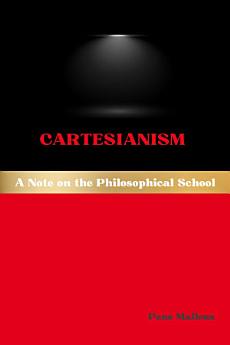Cartesianism: A Note on the Philosophical School
About this ebook
Cartesianism begins with a radical proposal: to doubt everything that can be doubted in order to arrive at something that cannot. It is from this method of systematic skepticism that Descartes arrives at his most famous conclusion: Cogito, ergo sum—"I think, therefore I am." From that seemingly modest insight, Descartes builds an entire philosophical system, one that seeks certainty in a world filled with uncertainty. He distinguishes the thinking mind (res cogitans) from the extended body (res extensa), introduces a dualistic view of human nature, and grounds knowledge in reason rather than the senses.
But Cartesianism is not simply the philosophy of Descartes. It is a tradition that grew, evolved, and was contested by his contemporaries and successors. Figures such as Nicolas Malebranche, Baruch Spinoza, and Antoine Arnauld developed, challenged, or reinterpreted Descartes’ ideas, pushing the boundaries of Cartesian dualism, causality, and the relationship between God, mind, and matter. Even critics of Cartesianism, such as empiricists and existentialists, often define themselves in contrast to its premises.
This book offers a comprehensive account of Cartesianism as both a historical movement and a philosophical framework. The aim is twofold: to provide a clear exposition of Cartesian principles, and to trace their influence on later developments in metaphysics, epistemology, science, and philosophy of mind. The first part of the book introduces the life and context of Descartes, the scientific revolution in which he was immersed, and the intellectual problems he sought to address. The second part dives into the key doctrines of Cartesianism, including the method of doubt, the mind-body problem, the idea of innate knowledge, and Descartes’ arguments for the existence of God. The third part follows the trajectory of Cartesian thought beyond Descartes, exploring its impact and its critics, and considering its relevance in contemporary debates about consciousness, artificial intelligence, and the nature of the self.
This is not a book solely for scholars. It is intended for anyone who has ever paused to wonder whether the world they perceive is real, whether the mind can be known apart from the body, or whether certainty is possible in a world governed by doubt. Cartesianism invites us to reconsider the foundations of our beliefs, to question appearances, and to trust in the clarity of reason. Whether one accepts its conclusions or not, its questions remain vital.
To study Cartesianism is to enter into a conversation that has lasted centuries—a conversation about the nature of thought, the limits of knowledge, and the essence of what it means to be human. This book is an invitation to that conversation.











